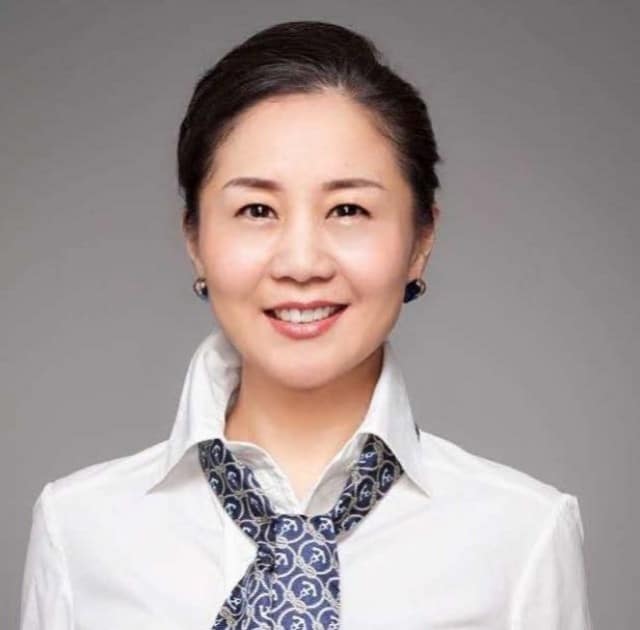
Yiwen Ping is a Senior Manager of Zhonghui China, one of the Top 4 tax agents in China for years. Yiwen Ping holds an MSc in Accounting and Finance from the University of Manchester. With 13 years of experience, Yiwen Ping is a tax consultant with focus on transfer pricing and is an expert in contemporaneous documentation, related party declarations, CbC reporting, multinational corporation profit monitoring, transfer pricing planning, value chain transformation, transfer pricing dispute coordination, and related services. Her clients are mostly listed companies, SOE groups and WFOEs which cover several industries, such as precision manufacturing, commodities, wholesale and retail trade, medical and biopharmaceutical, real estate, IT, and E-commerce.

Susan Li is a highly experienced solicitor and barrister with a wealth of legal expertise in China and Australia. Susan is also a member of several law societies and associations, including the ACLA, Qingdao Law Society of Shandong, and Queensland Law Society. A native speaker of Chinese Mandarin and highly fluent in English, Susan’s experience includes working as a legal and public affairs director for a US Fortune 500 company in South East Asia and Greater China, as well as serving as a senior partner and administrative board chairman at Beijing Jingsh Law Firm. She is currently serving as an International Business CEO at Brighture Tax and Accounting.
Investing in China
April 17, 2023
R&D tax incentives and policy to support investing in post-Covid China during 2023 are now significantly more appealing to inward investors than in the previous two years. The recent growth target of around 5% is considered cautious by economists given the stronger-than-expected economic activity in 2022.
Despite this cautious tone, many economists have been revising up their estimates for China’s GDP growth in 2023, with some predicting rates as high as 5.8%. This makes it an attractive proposition for investment, however, Kreston Global research also revealed that the Chinese market developed the most outwardly-investing global entrepreneurs or “interpreneurs” than other countries that were surveyed.
Kreston Global experts Yiwen Ping from Zhonghou CPAs and Susan Li from Brighture share their predictions for investment trends in the future, with a focus on balancing revenue and earnings growth with policy alignment and shed some light on this ambitious market and how foreign investors can get involved.
How has the Chinese economy changed in the last 12 months?
Yiwen: On March 5, 2023, Chinese Premier Li Keqiang pointed out in the government work report that in 2022, China’s annual GDP grows by 3%, and in 2023, the expected target is to grow by about 5%. This should be a moderate number since China’s epidemic prevention and control has entered the normalized prevention and control stage of “Class B and B pipe”.
Susan: In terms of the main economic structure, China is standing at the beginning of a new cycle. This is a new era, a new cycle, Total GDP is rapidly narrowing the gap with the largest economy, and per capita GDP is close to the threshold for high-income countries. The proportion of new infrastructure construction and new energy sources in the economic structure has increased significantly increasing investment in innovation and research and development. The era of real estate development has ended, and a new model needs to be solved. The urbanisation rate exceeded 65% and began to slow. After solving the problem of food and clothing, the people began to pursue a better life and realise their self-value. The ageing of the population with fewer children is accelerating. The economic growth has shifted from demographic dividend and investment-driven to total factor productivity and innovation-driven and is benefiting from the continuous consolidation of its position as a global trade power.
What investment opportunities have been attracting new business into China?
Yiwen: On February 27, China’s State Council issued the “Overall Layout Plan for the Construction of Digital China“, which proposed that by 2025, a horizontal integration, vertical connection, coordination and strong integration promotion pattern will be basically formed, including efficient connection of digital infrastructure, accelerated improvement of the scale and quality of data resources, effective release of the value of data elements, and substantial enhancement of the quality and benefits of the development of the digital economy.
Susan: There are some very important opportunities, such as China being carbon neutral by 2060, and achieving this goal creates huge opportunities in the energy transition into a structurally fast-growing industry. If China’s GDP growth is likely to be moderate, there will be many sectors or investment categories that will grow several times that figure. Whether it’s around new energy vehicles, green infrastructure, electric vehicle battery components, or the supply chain layout, you will see a lot of structural growth over the next few decades.
Which industries in China are seeing growth?
Susan: Science and technology industry, artificial intelligence industry, and new energy industry
Yiwen: Our new customers are mainly from the semiconductor materials industry, the lithium battery materials industry, the supply chain industry and the new consumption field. From the perspective of our clients, in recent years, China and Southeast Asian countries are the most are the most popular investment regions.
What advice are you giving clients to secure growth in the next 12 months?
Yiwen: On March 6, the Financial and Economic Committee of the 14th NPC of China held a plenary meeting and adopted the review report on the draft national economic and social development plan for the year of 2023. We recommend that entrepreneurs carefully study these reports and focus on digitalisation and supply chain areas around key industrial chains such as manufacturing to secure growth.
Susan: Product innovation to obtain product pricing power; ensure sufficient human resources; optimize product supply chain; improve technology content and make full use of artificial intelligence technology.
What new accounting services have clients been requesting?
Susan: Tax compliance and sustainable development.
Yiwen: In recent years, with the rapid expansion of China’s capital market, we have found that transfer pricing and R&D have increasingly become the key points of CSRC’s review. Therefore, among our clients, there is a growing demand for planning and advisory services for transfer pricing and the establishment of R&D system.
What investment trends do you predict for the future?
Susan; In any investment in China, it is very important to balance revenue and earnings growth in the short term, but it is also important to balance it with policy. One characteristic of China is the long-term nature of many policies and the ability of investors to align with them.
Yiwen: Due to the digital focus of the China State Council, It can be seen that the entire technology supply chain, from the supply of equipment and materials in the semiconductor industry chain to the application of software and hardware, will continue to be a hot spot for investment.
Finding a Kreston Global firm in China
If you are expanding into China and would like some investment advice, please get in touch. Yiwen Ping works as a transfer pricing expert and Senior Manager at Zhonghou CPAs, which has 10 offices across China. Yiwen is also a member of the Kreston Global Transfer Pricing Group.
Susan Li is the CEO of the International Business Department at Brighture, with offices in Qingdao and Shanghai, read their regular tax update newsletter here. Susan is also a Regional Tax Director representing Asia on the Kreston Global Tax Group.
Please visit our “Doing Business in China” for general advice on setting up a company in China.
If you would like to find out more about expanding your business into China, fill out the enquiry form below and one of our team will get in touch.

